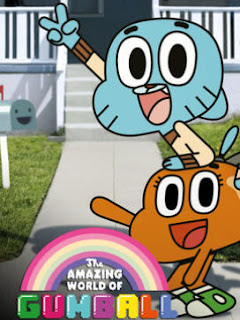Tough parts of recording?
Screaming, guttural utterances, doing multiple accents for one show, and tongue twisters. Jerry Jewel makes no mistakes when he records. Smoking makes breathing difficult, so if you smoke, expect to be a winded. (Chris Ayres, Greg Ayres, Jerry Jewel)How to be a voice actor?
YOU NEED TO ACT. You have to be a performer! You can't really take lessons on voice acting. You have to be able to be coached, or directed. The profession is NOT easy to get into. Also, it's not a solo profession: you'll never be "just a voice actor". Hold on to the dream, but don't be unrealistic. There's little work for voice acting, and even so there's already actors out there. What you learn while pursuing voice acting is the fun part. (Chris Ayres)
The Importance of the Accents?
They're actually pretty lenient. It's just a bunch of cliche accents. But sometimes it's extremely important, although that depends on the show. Actually, it really depends on the director. The only way to really "study" accents is by listening to them. There's also a book called "ACCENTS". As for the physical process, you do need to warm up before recording. Believe me, the critics of accents are worse than people with the legitimate accent being performed. (Jerry Jewel, Chris Ayres)
Dubs or Subs?
Subs actually aren't always that accurate. But it's really a matter of opinion. How ever, with dubs you can get the witty Japanese puns a lot better. An actual Japanese director said "I didn't intend for my show to be read: I want it to be watched and enjoyed". Puns are really hard to translate by the way... (Greg Ayres, Chris Ayres)
Greg Ayres's State of Industry Panel.
Why do an Anime Industry Panel?
I told you people about the dangers of piracy years ago, and then my predictions came true. Hate to say I told you so, but... Example: how fansubbing really hurts the industry. Guess what, fansubbing has been killing the industry. Sigh.
What's happening now?
A lot of companies are trying to switch to online streaming. "Thin Packs" are now standard (more episodes per DVD). Companies are finally starting to sue and form legal coalitions to take control of their products. FUNIMATION actually just sued a bunch. Actual Japanese artists are really starting to get disgruntled about the piracy. The author of Black Butler told so called "fans" that her "stuff isn't LOL". Three anime studios fell this year. Our American industry is very connected to the Japanese one. They literally cannot finish a series without licensing. In fact, during hard times, studios will start to produce more and more Fan Service Anime instead of taking chances on producing new ones. They aren't able to take any chances on whether or not a new show would sell, and unfortunately, they know that Fan Service will always sell. So: more Fan Service Animes. There's also less "extras" with real purchases because they don't have enough money to merchandize. And did you know Adult Swim actually hates anime? Basically, anime is completely lacking a viewing outlet. The best we have right now are subscription based services. Believe it or not, things like Hulu and Netflix actually help the industry as they provide a steady flow of income (even though its not as high as we would like). As for anime on US television, that's impossible. There's been many attempts to get a channel devoted to anime, and they've always been shut down. Sony and Best Buy don't support anime, and cable companies don't want to invest either. It was actually sort of a miracle that things like Dragon Ball Z, One Piece, and Full Metal Alchemist got on TV. Even so, they're played at obscure times when nobody can watch. Despite that, they're still tremendous proof that there's a large audience attracted to good anime if it were to air on live television. Fans are beginning to help with the anime industry. There's a few ways to do this. Taking pride in being a fan; rightstuff.com has huge legal deals on anime; keepanimealive.com; on overall attitude change towards piracy and fansubs. It used to be that when an artist would stand up for his or her work, people would tear them to shreds on this lovely thing we call the internet. Now fans are starting to support the artists much more. Artists are starting to self publish, which saves them a lot of money and give them a more direct income.
There's a few more notes about the convention itself, but I will save those for another blog post some other time.


